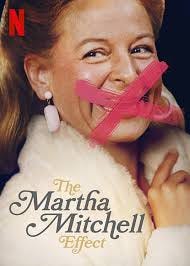America doesn’t do its political scandals by halves. It is the country that brought us the practice of adding -gate to a scandal in the first place after all. I know it’s been a while since we all learned of Signalgate, but I was on holiday then and I couldn’t help myself: US political scandals are quite simply My Vibe. So whilst this isn’t a million miles from things I’ve written about before, I have some goodies for you below.
I hope that, in a perverse way, it is a little heartening to know that these kinds of things have been happening since time immemorial and we’re all still here: even in the face of despots, tyranny and absolute stupidity, we persist. Let’s cling to the glimmers where we find them, from Susan Crawford beating Elon Musk’s puppet to the Wisconsin Supreme Court to the Irish politician who made it plain that that ‘on behalf of the women of Ireland he [Conor McGregor] can f**k off’.
TL;DR
Listen to any & all of Slow Burn and The Fault Line; watch Frost/Nixon and Charlie Wilson’s War; read The Teapot Dome Scandal and The Fifth Risk; and watch The Martha Mitchell Effect and Weiner.
LISTEN
The Slow Burn podcast has ten seasons to tuck into, each focussing on a different story, mostly scandals or feuds.
Some are political ranging from Watergate to Bill Clinton, others are more sociological in tone looking at the Roe v Wade ruling & its context as well as the riots in Los Angeles around the trial of Rodney King and the story of former grand wizard of the Ku Klux Klan, David Duke. Other seasons deep dive into the Biggie v Tupac beef and most recently, the rise of Fox News.
All of them are thoroughly researched and tell each story with great insight and often feature people who were involved at the time but who have rarely, if ever, spoken. Their examination in season eight of the life and career of Supreme Court Justice Clarence Thomas is eye-opening as it charts the young radical’s development into a stalwart of the American right-wing in justice and politics - well worth your time.
Whilst the fifth season of Slow Burn examines America’s route into the Iraq war in 2003 and you could do worse than to listen to it in full and follow it with The Fault Line: Bush, Blair & Iraq.
Presented by British broadcasting legend David Dimbleby, this will tell you even more things you didn’t already know about the lies and machinations that dragged the United States and their then closest ally, the United Kingdom, into war in Iraq.
WATCH
Now it’s time for two of my all-time favourite films. First up, Frost/Nixon started life as a play by Peter Morgan (him of The Crown fame), based on the late Sir David Frost’s interviews with disgraced former US President Richard Nixon following his resignation from office in 1974.
As with the stage production, Michael Sheen plays Frost and Frank Langella is Nixon. The film charts the British journalist’s struggle to get the series of interviews picked up by any American network and problems getting sponsors to finance the project. However these are secondary to his ultimate goal of getting Nixon to confess to his role in the Watergate scandal.
Sheen & Langella inhabit their roles with finesse and intelligence and Morgan’s writing always adds an air of perspicacity which when paired with such acting chops is a joy to watch. The examination of this particular point in time confirms that where Nixon truly was a socially awkward who was utterly convinced of his own importance, more surprisingly Sir David was himself somewhat similar to his adversary: hugely ambitious and driven but ultimately self-serving individuals.
Next up another serious subject: how the Americans wound up arming the Taliban in Afghanistan as they fought off the Russians in the late 1970s / early 1980s only to then go to war with them a couple of decades later.
But Charlie Wilson’s War provides far more light than shade with Tom Hanks as the eponymous protagonist, Julia Roberts as an insanely rich socialite with questionable amounts of political influence (as well as a somewhat questionable Deep South accent, I would imagine) and the late great Philip Seymour Hoffman.
This is one of very few films I have watched several times. I love it. The writing is quick and witty, the characters are hugely entertaining; particularly Seymour Hoffman as Gust Avrakotos. But that previous sentence is not even remotely surprising given that Aaron Sorkin wrote it - and we all know my thoughts on Sorkin - so it does that magical thing of making you understand (or at least think you understand) subjects that might otherwise be considered boring, dry or extremely complex without making the viewer feel patronised either. It was also the final feature Mike Nicholls directed.
Texas Democratic Congressman Wilson was a colourful character, to say the least, who we learn at the outset is facing prosecution for misconduct, including though not limited cocaine use. And who was the federal prosecutor so doggedly pursuing our dashing hero? None other than Rudy ‘this cheap hair dye is literally dripping off my head during a press conference’ Giuliani. I bet Giuliani was just jealous.
After Roberts’ socialite pretty much instructs him to help the Afghani people, he does. Amazing the effect a blonde with a pile of cash and some impressive kaftans can pull off. And lo, a political adventure ensues.
If you haven’t watched it, what are you waiting for. And if you have, you know it’s good so go watch it again!
READ
Did you hear the one about the US President handing over the reins of a large part of the country’s economy to the richest men in the country? No, not in 2025, this time a hundred years ago: the Teapot Dome Scandal.
The Teapot Dome Scandal: How Big Oil Bought the Harding White House and Tried to Steal the Country by Laton McCartney (catchy title, eh?) explains the story of what is generally considered the second biggest political scandal in American history after Watergate.
In 1910, then President William H Taft began designating some oil-producing areas in the United States as naval oil reserves so the Navy would never run out of fuel - including the Teapot Dome area, hence the odd name. Later in 1921, President Warren G Harding (no relation, as far as I know, to that Warren G) oversees the passing of those reserves to oil company executives who had financed his presidential campaign which was weirdly just about legal. But then the execs went on to loan and gift millions to a member of Harding’s cabinet. That was not. As they say, it’s not the crime that will be your downfall, it’s the cover-up.
McCartney’s take is exciting and full of twists as he examines the crimes carried out by Big Oil a century ago; he even wonders about whether the suicides of some characters in the tale might have been murders carried out as part of the cover-up. Harding himself died in 1923 before the full extent of the scandal was revealed (no foul play suggested there I believe) but the author includes plenty of evidence and detail to strongly suggest that he knew exactly what was going on. A good reminder that they’ve always been at it - as if we needed it.
As I will watch anything Aaron Sorkin has written, I will read anything Michael Lewis has written.
The Fifth Risk: Undoing Democracy is a chilling but wildly important read. It details the roles of the US Departments of Energy, Agriculture and Commerce and how Republicans started to dismantle them during the first Trump presidency. So Lord only knows what shape it’s in now that DOGE has been unleashed.
I know it sounds boring: but it’s very much not. The book’s detail and interviews demonstrate just how unprepared Team Trump were when they moved into the White House and started governing in 2016. This casts into sharp relief the stark difference between then and now under current White House Chief of Staff Susie Wiles and head of the OMB & author of that godawful document Project 2025, Russell Vought.
We learn of Trump’s insistence on handling the transition himself once Chris Christie had been dispatched by Steve Bannon. Overseeing the transition into government means getting people into the jobs that need filling with the end of the previous administration. At the time of the book’s publication, of roughly 700 vacant government positions, just over half had been filled. (Usually you have a raft of talent ready to go) But the remainder were not simply waiting for confirmation: there were no candidates to fill them. The prep work simply hadn’t been done.
Since then, think tanks and other Washington-based groups have sprung up in order to create a pipeline of Trump-tinged talent to fill out the ranks of suitable candidates for what the Project 2025 team saw as impending second Trump presidency. An excellent piece from The New Yorker here about that. But it’s truly jaw-dropping the things that they just didn’t bother to do during those first four years that left the world a more dangerous place.
WATCH
If you fancy having your hair light on fire from pure righteous indignation and outrage at how truly abysmally women were treated in the not-so-distant past then watch The Martha Mitchell Effect.
It’s easy to forget in the enormity and fame of scandals from the past, they didn’t exist in a vacuum. Other ancillary scandalous things were happening without casting as long a shadow and their ripple effect touched many people’s lives - not just those of the main characters we know well. The version of history we get depends on who tells it. And so when it comes to Watergate, a story we’ve heard for decades, we assume we know the cast of characters well; in this particular instance, a load of men. I hadn’t really heard about any women involved and I definitely had never heard of Martha Mitchell.
But we should all know about Mitchell and what Nixon’s administration did to her - it is a scandal in itself. She was a woman very much born ahead of her time in terms of her outspoken nature & refusal to just be a quiet little DC homemaker focussed on hosting dinner & cocktail parties.
Married to John Mitchell, Richard Nixon’s Attorney General, Martha was one of the most well-known women in the United States during the Nixon administration. She apparently had a habit of taking a libation of an evening and picking up the phone to journalists to give them tidbits of gossip here & there. This wound up giving her a reputation and placing her in danger…from her husband’s employer, also known as her own government.
I don’t want to give too much away but trust me: you need to watch this.
It’s important to remember that not all American political scandals belong to the Republicans. Slow Burn mentioned above does an excellent and extensive re-examination the Bill Clinton / Monica Lewinsky affair but a more recent Democratic sex scandal was that of AnthonyWeiner.
Weiner was married to Huma Abedin, a senior aide to Hillary Clinton for a long time including as Vice Chair of her 2016 Presidential campaign. Weiner is a truly stunning example of, maybe not quite men failing upwards, but definitely a white guy’s genuine & unshakeable entitlement to success at the highest level despite their shortcomings or, y’know, crimes.
He resigned from Congress after got caught sexting in 2011. Went back to politics to try to become New York City Mayor in 2013. Got caught doing it again. Got caught sending explicit photos again in August 2016. Split from his wife. The next month he got caught sexting a 15 year old. As part of the investigation, his laptop was seized which in turn led James Comey to reopen the investigation into Hillary and her emails right before the 2016 election. Talk about a butterfly effect. Seriously folks, you have to see it to believe it.
Guess what Anthony Weiner is doing now? Running for political office. I kid you not.











